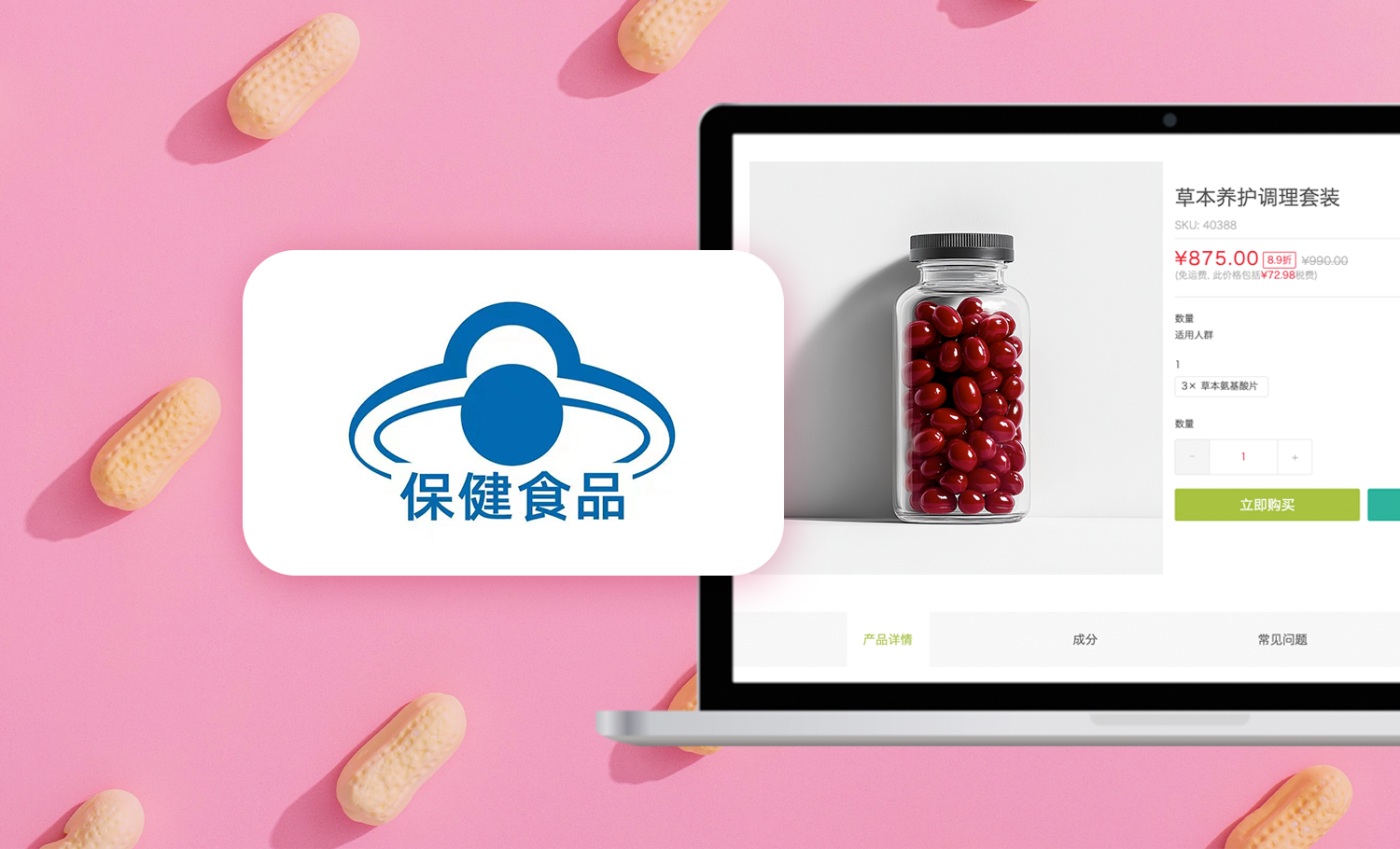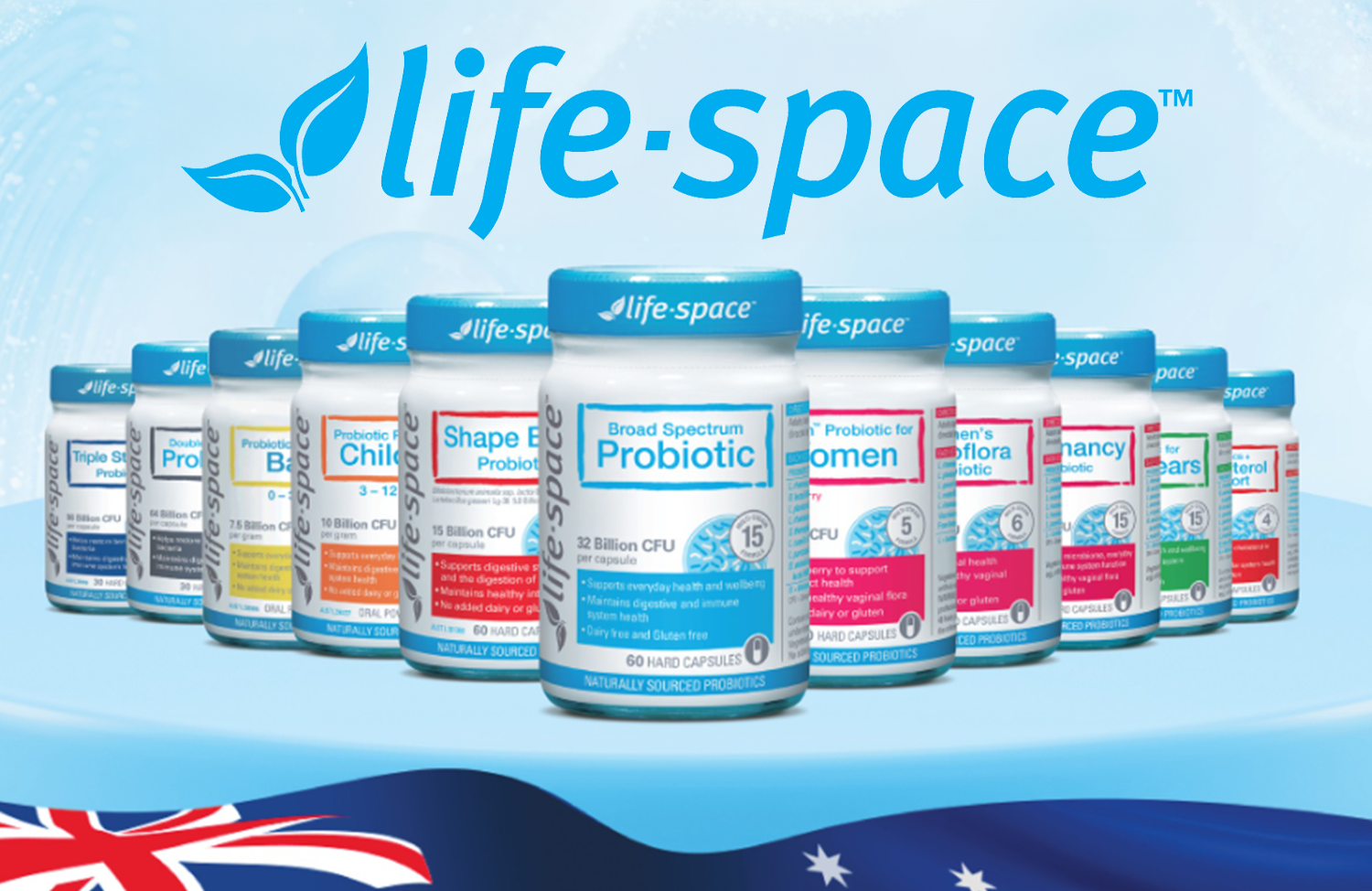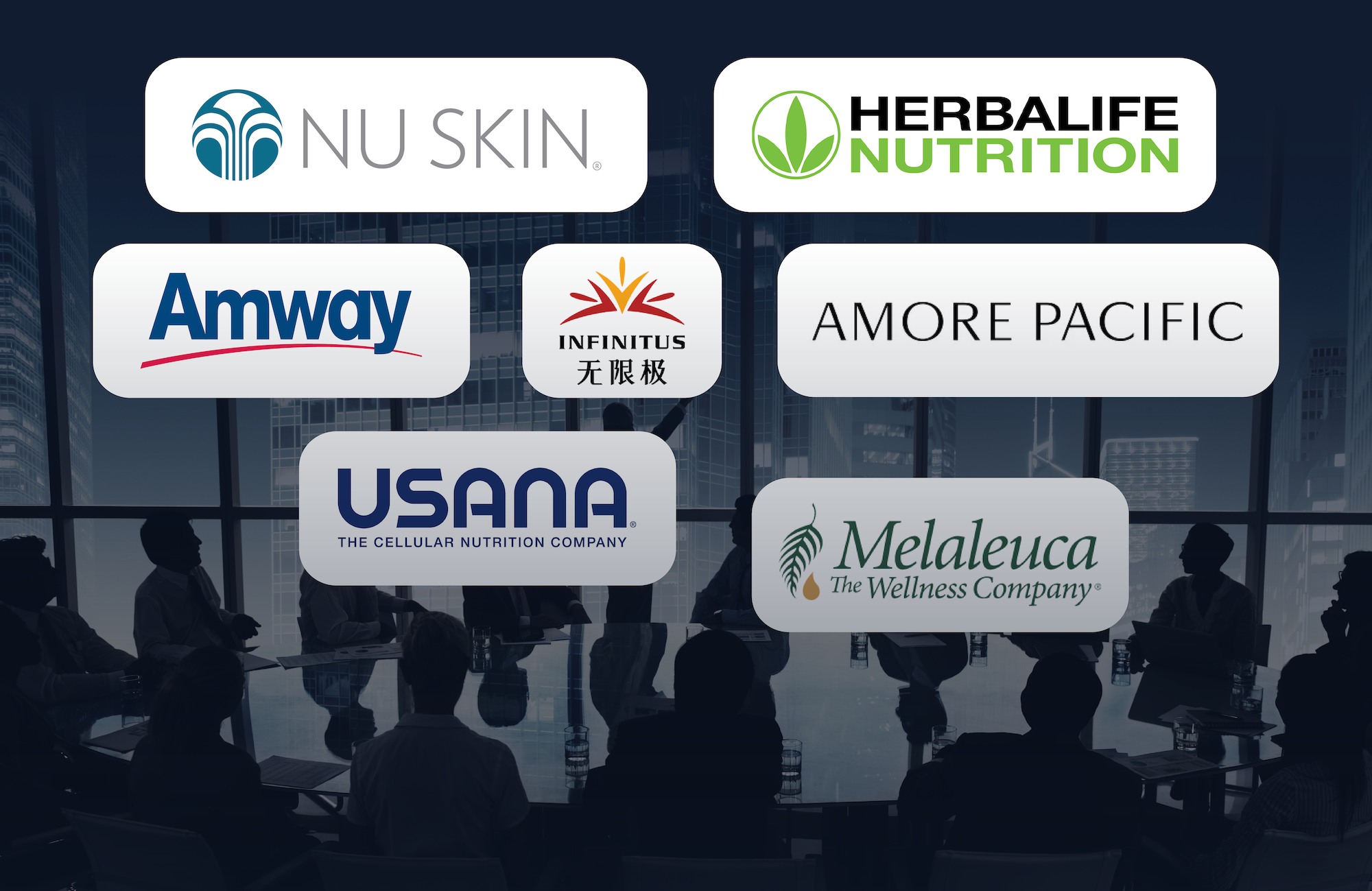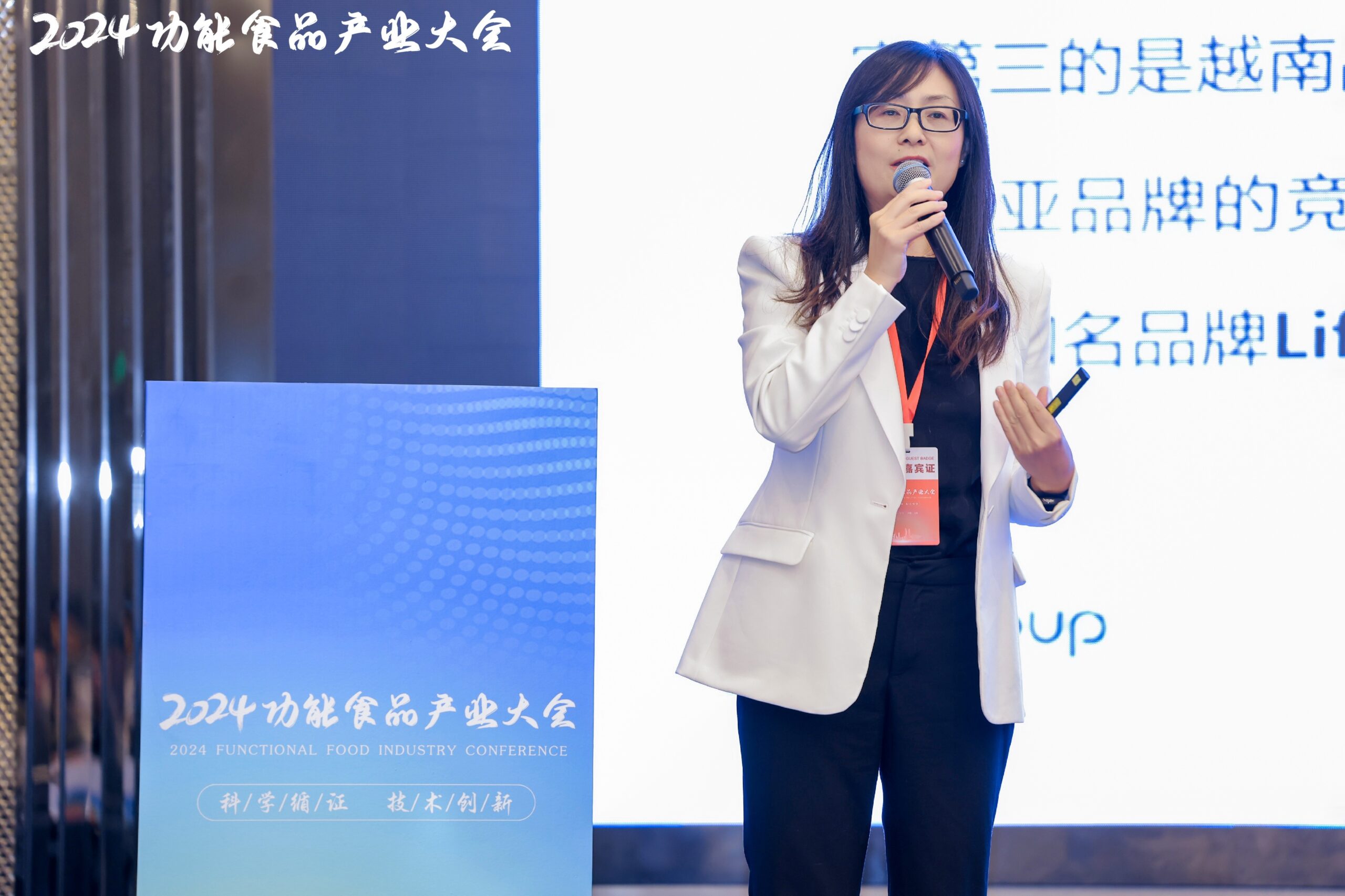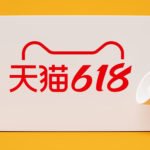It has been almost 34 years since direct sales entered China in the early 90s. It was a tumultuous journey, with multiple ups and downs–from the legal crackdown and strict legislation on one side to explosive growth and the “Golden Decade” of direct sales on the other.
The latest development came in 2019 in the form of the so-called “Hundred Days of Action” — a series of measures aimed at ending illegal practices in the health products market. It is still too early to say if “100 days” will result in stagnation of direct sales in China or will result in healthy growth in a more civilized ecosystem.
Can a direct sales company enter the Chinese market if it doesn’t have a direct selling license? What’s the path to success like for the companies that do have a license? In this article, we will look in depth at the direct sales market — from a brief history tour to the latest news, from top players to possible trends.
Other articles about Direct Selling in China:
- Direct Selling in China: Multi-Level Marketing, But Not As You Know ItTraditional MLMs had to adapt their businesses to China's strict requirements on direct selling models, and now the business looks very different.Direct Selling in China: Multi-Level Marketing, But Not As You Know It
- Digitalization, Retailization, and Multi-channel Trends in China Direct Selling IndustryDiscover success cases and key measures as valuable references for overseas brands amidst the trend of digitization, retailization, and multi-channel sales in China's direct selling industry.Digitalization, Retailization, and Multi-channel Trends in China Direct Selling Industry
- New Products Trends from Leading Direct Sales Companies in ChinaDirect selling companies in China introduced nearly 400 new products In 2022. . In this article, we will list the new products from hot categories in China's direct-selling market last year.New Product Trends from Leading Direct Sales Companies in China
Timeline of Direct Sales Regulations in China
1990: The history of direct sales in China begins in the early 90s. Interestingly enough, we can even pinpoint the exact date, when the direct sales concept was officially introduced: the 14th of November 1990. On that memorable Wednesday, with the approval of the Guangzhou Bureau of Industry and Commerce, Avon established a joint Sino-American company Guangzhou Avon Co., Ltd. The era of direct sales in China has officially begun.
It was a risky decision: Chinese international relationships in 1990 were rather tense and China was considered an unstable economic environment by Western countries. Moreover, Avon wasn’t in the best shape itself. The company was suffering from low earnings and found itself under the threat of a takeover. Venturing into China was one of those “make it or break it” moves for the New York-based cosmetics enterprise.
As you are reading this thirty years later, you may have guessed, what was the result of this dicey move: enormous success. By 1997, Avon’s revenue in China would have reached 1 bln RMB (that would be around 125 million USD according to the exchange rate of that time, which is about 200 million in today’s dollars).
1994: Seeing this dizzying success, Avon’s competitors rushed into the country too. Unfortunately, it attracted not only fair-willed enterprises but a bunch of con artists also — from both the US and Taiwan. That, combined with the rapid growth of the Chinese economy and dire lack of regulations, soon turned the direct sales market into a scam-ridden chaotic mess.
Intervention came in 1994 when the State Administration for Industry and Commerce issued several regulations forcing direct sales companies to register and follow certain rules.
1998: Regulations were followed by the “Notice on Prohibiting MLM Business Activities” issued by the State Council in 1998, which effectively banned multi-level marketing (MLM) in China.
Through the introduction of this ordinance, the Chinese government aimed to address concerns related to fraudulent practices and pyramid schemes in the direct selling industry. As a result, 10 foreign-invested companies were allowed to continue to operate with the “Shop + Salesman” approach. The direct sales market has entered its first quiet period.
2001: A special opportunity in 2001 restarted the Direct Sales industry, as China successfully joined the World Trade Organization (WTO) and a clear promise in the terms of accession was to “open up shop-free sales within 3 years.”
2005: In 2005 the Chinese government lifted the ban but with a set of provisions aimed at allowing only legitimate direct sales. Most notably, “Regulations on Direct Selling Management”, issued by the State Counsel treated direct sales and MLM as two distinctly different industries.
MLM was defined through the usage of such staple pyramid practices as an upfront investment in the product; absence of return and refund policies; compensation, based on the size of “the network” — people joined via invitation of a particular member. The direct sales model, on the other hand, does not use these methods, it establishes safeguard policies that protect the consumer and recruit individuals to promote the product among peers.
While MLM is outlawed, direct sales are recognized as a legitimate business model and offered some legal protection. 2005 turned out to be the first year of the new direct sales era in China. The China Direct Selling Association (CDSA) was established to promote the healthy development of the direct-selling industry and enhance self-regulation among direct-selling companies.
Large players started to return to China. According to new regulations, to enter the Chinese market, a company has to have certain registered capital and put down 20 million RMB in deposit (about 3 million USD). Besides, it had to get a license from the Ministry of Commerce—92 licenses were issued in 2006.
Despite these strict measures, the market proved to be hungry for direct sales: from 2006 to 2007, the market grew 61%. Since then, the direct selling industry has entered its “Golden Decade”.
2013: Despite the growth, the direct sales market was not in the clear. Every now and then, certain companies tried to push the legal boundaries too far, operating ever so close to what is considered MLM, rather than “direct sales”. In 2013, the Chinese government amended the regulations governing direct selling to provide clearer guidelines and address issues related to illegal pyramid schemes. These provisions included:
- Restrictions on "excessive or unfair" recruitment fees for new sales representatives.
- Prohibition of Multi-level Marketing Pyramid Schemes that rely on recruitment rather than actual sales of products.
- Increased Disclosure Requirements for more transparent information to potential sales representatives, including compensation structure, and the products being sold.
- Enhanced Consumer Protection Measures for handling consumer complaints and disputes promptly.
- Stricter Licensing and Registration Procedures:
- Rigorous procedures for obtaining and maintaining a license for direct selling activities.
- Granting authorities with supervision and inspection powers to ensure compliance.
Starting in 2016, with the rise of e-commerce platforms and social media in China contributed to the evolution of direct selling strategies, enabling companies to reach a wider audience and leverage online channels.
TMO has helped companies successfully enter China via cross-border eCommerce and build their digital operations. Read more about the success stories of our clients: LifeVantageA Cross-border Bonded eCommerce solution that integrates logistics, payment, and customs compliance, helped LifeVantage to smoothly enter the Chinese market.Lifevantage, MT365Dynamic content based on member tiers helps MT365 offer a multi-language, app-like web experience in Asia and lays the framework for easy international scaling.MT365, MannatechMannatech's legally-compliant China bonded cross-border model provides an optimized eCommerce experience on WeChat and across desktop, mobile, and tablet.Mannatech
2019: It all culminated in January 2019 when the prominent company Quanjian Group was accused of using MLM practices in operating its 20 billion yuan business empire. Owners were arrested and the company ended up in sharp decline.
The “Quangjian incident” ushered in a new wave of regulations that ended the “Golden Decade” of direct sales in China. Administration of Market Supervision, together with other administrative bodies launched the “Hundred Days Action” program, which suspended some of the direct sales licenses and introduced more strict controlling measures for the industry.
Despite all the regulations, the direct sales market is thriving. There is a huge unsatiated demand for health and beauty products that are traditionally promoted via a direct sales model. The size of China’s direct sales market was estimated to reach 280 billion yuan in 2021 and is expected to exceed 300 billion yuan in 2023.
The history of direct sales in China is a bumpy ride, and it is far from being over. It is and will continue to be the center of attention for big international and national enterprises, as well as millions of Chinese consumers.
Obtaining and "Borrowing" Direct Sales Licenses in China
The turbulent history of direct sales is going through its still phase now. So much so, that the Chinese government completely ceased issuing new direct-selling licenses. However, the desire of customers to get products and the desire of entrepreneurs to satisfy that demand is not that easy to stop.
There are quite a few companies, both at home and abroad, wistfully eyeing the fertile Chinese market. And wherever there is a will, there is a way: although there is no official procedure in place to get the license and enter the Chinese market, there is a way to tiptoe around this legal obstacle: “License Borrowing”.
In 2009 an eCommerce company “Hong Kong Winalite Group Inc” merged with “FOR YOU GROUP”. One of “For you”’s subsidiaries, a Shanghai company named Shanghai Fudi Health Technology, was one of 23 lucky holders of a direct sales license. This way, Yuelnag managed to bypass the legal scope of China’s “Regulations on Direct Selling Administration” and completed the first direct sales transaction under a “borrowed” license.
Similarly, in 2010 the American company USANA acquired a direct-selling company China-Baby Care, and its business in 21 Chinese cities, successfully entering the Chinese market.
There are a few companies on track to obtaining direct sales licenses through similar acquisitions, for example, an American nutrition and beauty company Vasayo. It remains to be seen, however, if getting the license in such a costly and roundabout way is worth it.
Top 5 Foreign Direct Sales Companies in China
1. Nu Skin (如新)
Country of origin: United States
Founded: 1984 in Utah, USA
Licensed in China since 2006
Registered capital: 30.07 million USD
Since its founding in 1984 Nu Skin became one of the biggest direct sales companies in the world, selling their products in over 54 countries in America, Europe, Africa, and Asia, generating over 2 billion USD in revenue. Nu Skin was one of the first companies to obtain a Chinese direct-selling license. For 2023, its financial report showed a US $1.97 billion global revenue–a 12% decrease–out of which US $298 million came from the Chinese market.
Nu Skin was once one of the companies with the strongest performance amid industry turmoil and the impact of the epidemic. It has been launching a number of measures to maintain the market. In early 2022, Nu Skin planned the "2025 Nu Skin Vision" and launched the "Empower Me" strategy. In the 20th anniversary of its Chinese mainland market entry, Nu Skin has focused on the three core factors of products, technology and community mentioned in the "Empower Me" strategy: NU BANK has been launched in eight cities across the country. Nu Skin pop-up store renewal tour activities; launch of ageLOC WellSpa iO; marketing guide launches TRME section; monthly selection of "Top 100 Store Owners" of NU stores.
In January 2024, Nu Skin (China) launched the board game "Road to Takeoff" for the first time in the industry, hoping to attract young people and solve problems such as difficulty in inviting, cultivating, and starting direct sales business.
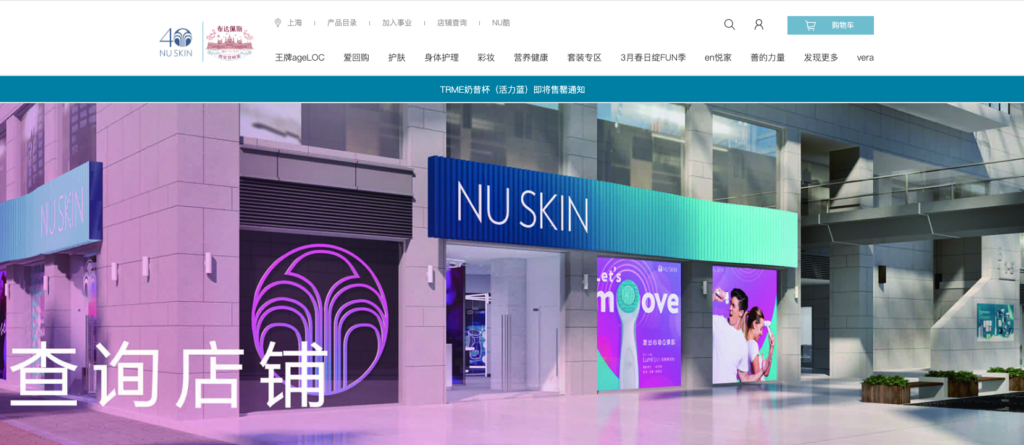
2. Amway (安利)
Country of origin: United States
Founded: 1959, in Michigan, USA
Licensed in China since 2007
Registered capital: 126.1 million USD
Amway probably does not need a lengthy introduction. Specializing in health, beauty, and home care products, it is one of the largest direct sales companies in the world. It is also one of the oldest— it was founded in 1959 in Michigan. In 2023, Amway (China) performance achieved a YoY growth of 6%–which brought its three-year growth to an average 7%–and marking a return to US $2.77 billion
Since 2022, Amway's goal is to develop in three directions: intelligence, personalization, and lifestyle, aiming to provide consumers with comprehensive health solutions. Amway strengthens its business by leveraging digital solutions to support its distributors in expanding their businesses. It has been reported that Amway (China) achieved double-digit growth in performance in the first half of 2022, marking the first time since 2019. This demonstrates that Amway's long-standing strategies of experiential, youthful, and digital approaches have yielded positive results.
One of the most recent innovations in Amway's business in China is the Amway Cloud Shopping Mini Program, which has a convenient and powerful menu, allowing customers to contact sales specialists immediately, and also directing traffic to the corporate WeChat account where exclusive Amway consultants are added to maintain long-term demand exploration with customers.
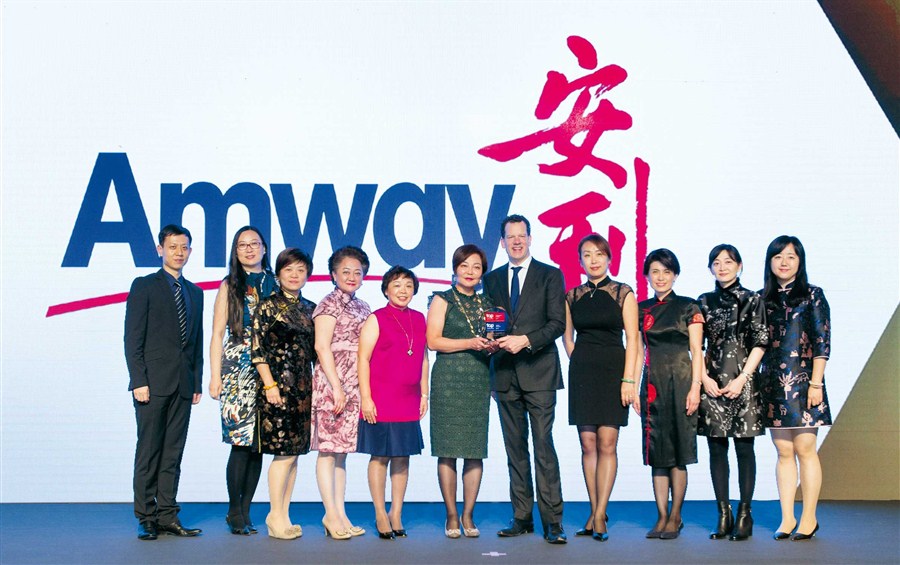
3. Oriflame (欧瑞莲)
Country of origin: Sweden
Founded: 1967 in Stockholm, Sweden
Licensed in China since 2007
Registered capital: 26.11 million USD
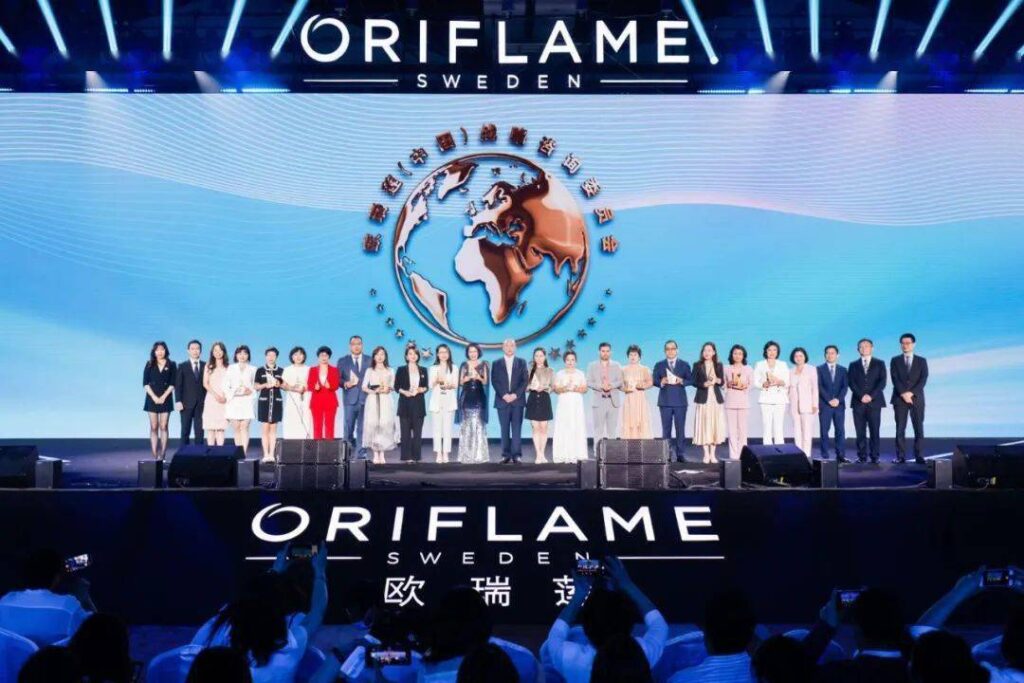
Oriflame is one of the few European direct-selling companies to enter China. The company focuses on cosmetics and adopts a more traditional approach to promotion. However, the Chinese market has been affected by external factors in the past two years. Faced with challenges, Oriflame launched a dedicated China Business Support Program in 2021, aiming to lower performance assessment requirements and provide entrepreneurial fund rewards. In 2023, Oriflame's global revenue dropped by 19% to US$811 million, and local currency sales dropped by 12%.
4. Herbalife (康宝莱)
Country of origin: USA
Founded: 1980 in California, USA
Licensed in China since 2007
Registered capital: 14.166.667 USD
Herbalife is a world-leading direct sales company, specializing in nutrition and weight management. Starting in California in 1980, it now has branches in more than 90 countries and regions around the world, including China, with Shanghai as the location of Herbalife China’s headquarters. Their financial report shows that Herbalife’s performance in 2023 is US$5.1 billion, a worldwide decrease of 2.7% which was mainly dragged down by its China business falling by 16.3%. Herbalife China has recently announced plans for building a GBS (Global Business Service) center in Dalian.
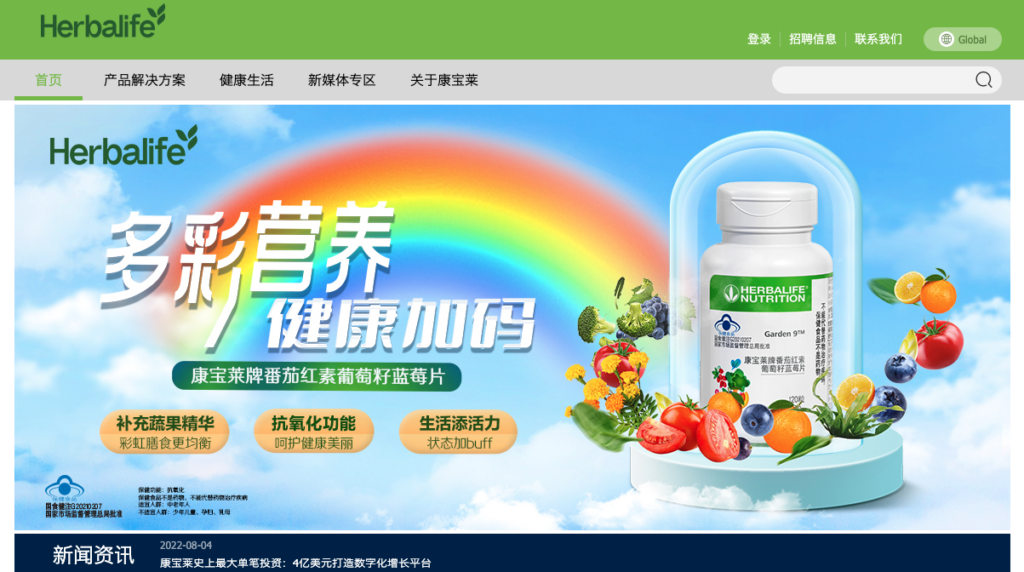
5. Perfect (完美)
Country of origin: Malaysia
Founded: 1994 in Guangdong, China
Licensed in China since: 2007
Registered capital: 38 million USD
Perfect is an overseas enterprise invested and established by Perfect Resources Malaysia Co. in Zhongshan, Guangdong Province, China in 1994. Perfect (China) has faced significant challenges in market development due to the pandemic. In 2022, the company initiated an image and structural upgrade for its entire product line, aiming to enhance the cost-effectiveness perceived by consumers. Currently, Perfect focuses on digitalization, fashion, and youth empowerment as its clear strategic direction. In July 2022, Perfect successfully held a seminar in Hainan, overcoming various obstacles and injecting more confidence into the market.
Perfect’s performance in 2023 has finally stopped declining, and it has formulated a three-year “Yingqingqi” plan and will celebrate its 30th anniversary in 2024. The core business strategy is "key breakthroughs, leading from point to point". It will support partners to expand their businesses by providing better products, marketing tools and policies, strengthen digital construction to help upgrade sales scenarios, and continue to promote the healthy and green development of the market.
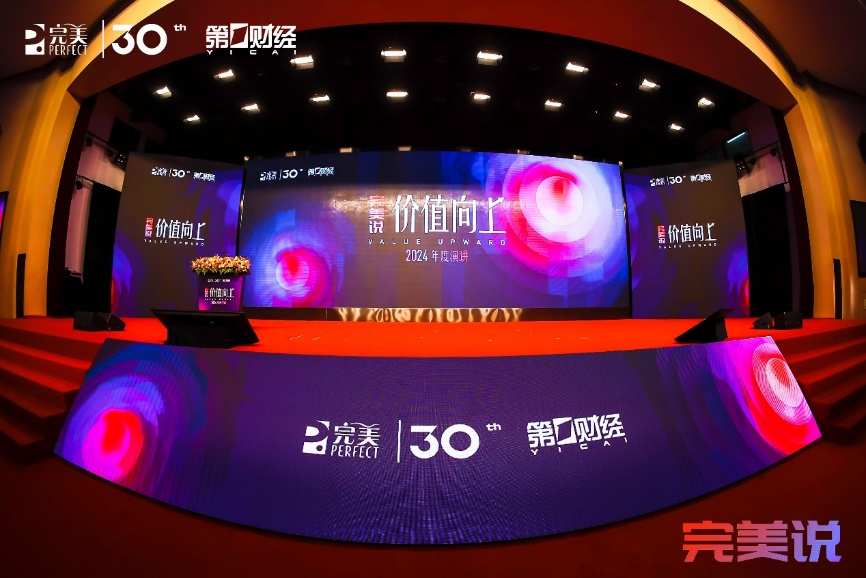
Top 5 Chinese Direct Sales Companies
1. YOFOTO Sansheng (三生)
Country of origin: China
Licensed in China since 2007
Registered capital: HK $156.8 million
Sansheng has always been one of the benchmarks for domestic direct selling companies. It is one of the best in terms of investment in management, products and shopping malls, and its performance is relatively stable. In 2022, Sansheng will carry out digital operations through four-end linkage around "community maintenance, live streaming of goods, branch upgrades, and short video planting", with good results. In 2023, it proposed to fully empower business partners with digital tools, and at the end of June, it successively released images of digital people such as chairman, senior executives, and product lecturers to lead the application of AI in the direct selling industry. In 2023, Sansheng will focus on the two major brands of Yufangtang and Oriental Literacy and launch a number of new products; it will release the first "China Peptide Nutrition White Paper" and launch the 20th anniversary Chinese tourism seminar of "Sansheng Dream·Travel in China". In 2024, Sansheng will celebrate its 20th anniversary.
Sun Pengbo, President of Operations of 3SBio (China), revealed that 3SBio’s operating income will grow against the trend in 2023, especially in key indicators such as product self-use rate, repurchase rate, and member retention rate. In 2024, Sansheng will implement eight major strategies around eight dimensions including product power, brand power, marketing power, repurchase power, digital intelligence, education power, activity power and strategic power, and start the first battle in the next 20 years.
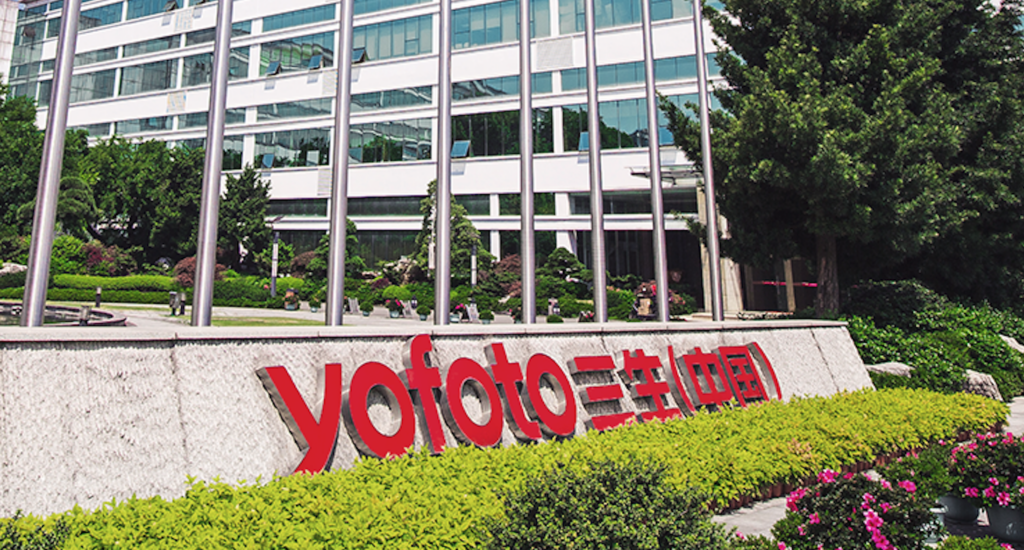
2. New Era (新时代)
Country of origin: China
Licensed in China since 2007
Registered capital: 100 million RMB
New Era (XinShiDai) is a large-scale enterprise that engages in a wide range of activities — from scientific research and production of raw materials to actual direct sales of their products. It is one of the oldest direct sales companies in China, established in 1995 in Beijing. The company has branches in 31 Chinese provinces and has expanded to Southeast Asian countries, South Korea and Russia. The direct selling business continued to be sluggish in 2023. Compared with the peak performance of nearly 10 billion, the performance has declined seriously.
The new era company has three major product brands: health and nutrition products “Guozhen (国珍)”, cosmetics and makeup “Shareland” (香兰阁), and cleaning products “Zhuzhen (竹珍)”. Their signature items are based on pine pollen and bamboo leaf extract.
As a representative of state-owned enterprises in the direct selling industry, New Era has also been affected by the overall environment and experienced a downturn. In recent years, New Era has made significant efforts in exploring the e-commerce direction. Currently, its key weapon for enterprise transformation and market upgrades remains the young e-commerce platform Jiankangke (荐康客). The innovative community mindset and sharing mechanisms of the Jiankangke(荐康客) platform have to some extent boosted New Era's customer expansion efforts and provided a certain level of traffic guarantee. In terms of offline activities, New Era has conducted a series of health science popularization events over the past year, collaborating with industry experts to bring health knowledge closer to consumers through health lectures, and spreading health concepts and awareness.
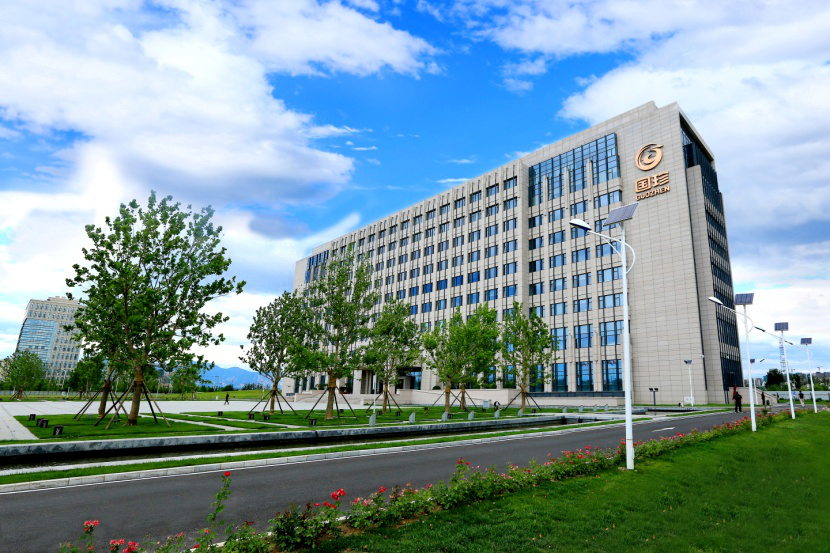
3. Pro-Health (宝健)
Country of origin: China
Licensed in China since 2007
Registered capital: 50 million USD
Hong Kong-funded enterprise, Baojian Group, also known by its Westernized name “Pro-Health”, like many direct sales companies, integrates research and development, production, distribution, sales, and services. Pro-Health’s line of products includes nutrition and health care supplements, beauty and skincare, and daily chemicals and cleaning products. Throughout its history, Pro-Health had the reputation of constantly being on the same page with the Government. The company encourages its sales partners to give back part of their income to society, innovating the concept of public welfare.
Pro-Health has a relatively traditional sales team, and its performance has remained stable at around 1 billion yuan for several years. However, in the past years, the COVID-19 pandemic and industry regulations targeting elderly fraud have had an impact on the aging Pro-Health team. In order to stimulate the market, Baojian successively launched elite plans and glory plans to increase rewards, but the results were average. In 2024, Baojian will hold New Year kick-off meetings in hundreds of cities in the form of branches.
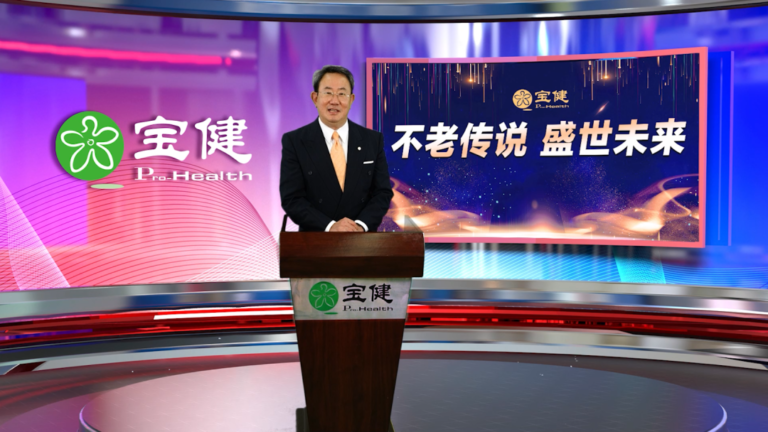
4. Kangmei (康美)
Country of origin: China
Licensed in China since 2014
Registered capital: 695 million USD
Currently, Guangdong Shennong Enterprise Management Partnership (广东神农氏企业管理合伙企业), established in November 2021 and with Guangzhou Pharmaceutical Industrial Park holding a 45.86% stake, has become the largest shareholder of Kangmei Pharmaceutical. The acquisition by Guangzhou Pharmaceutical Industrial Park has brought a turning point to Kangmei's direct selling business, and the slogan "Guangyao · New Kangmei" (“广药•新康美”) has become a new market appeal. In the first half of 2022, Kangmei's direct selling business experienced the strongest market alliance. Hengjiu Health Industry Company (恒灸健康产业公司) and Kangmei Era reached a cooperation agreement to jointly create "Guangyao · New Kangmei · Ai Xiaobai," (“广药•新康美•艾小白”) resulting in a significant improvement in the market. It is rumored that Kangmei Era is planning to use this as a benchmark to comprehensively integrate the company's direct selling business.
In the first half of 2023, Kangmei's direct sales business achieved growth against the trend, with considerable market volume and performance. However, weakness returned in the second half of the year and performance fell.
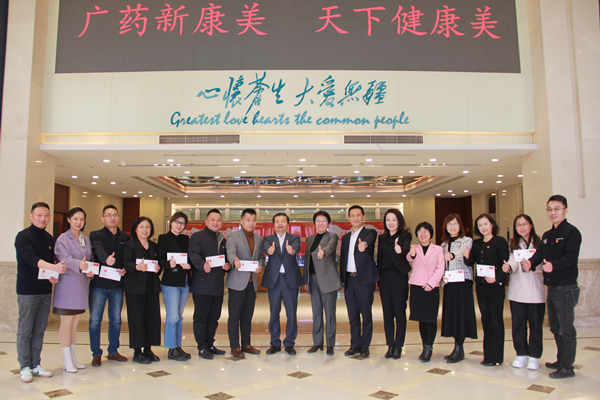
5. Tiens Group (天狮)
Country of origin: China
Licensed in China since 2011
Registered capital: 49 million USD
At the 27th anniversary global carnival of the Tiens Group in 2022, Qiang Li, who previously served as the minister of education at Tiens, returned to the company and assumed the role of vice president and general manager of the China Region. With a live broadcast, Tiens Group announced the restart of its operations in the Chinese market. However, the JTMM global cross-border social membership new e-commerce platform, built by Tiens Group during the August 3rd celebration in 2021, did not achieve significant results. Tiens Group has now become a shining example of success outside the Chinese market.
Frorm 2023, Wu Xi serves as the president of Tiens China, making every effort to accelerate the construction of big data and release the new App "V-Moment"; in September 2023, Tiens will hold its 28th anniversary celebration; in January 2024, Tiens will hold its 2024 global business development meeting According to the strategic press conference, Tiens currently accounts for more than 70% of its overseas performance
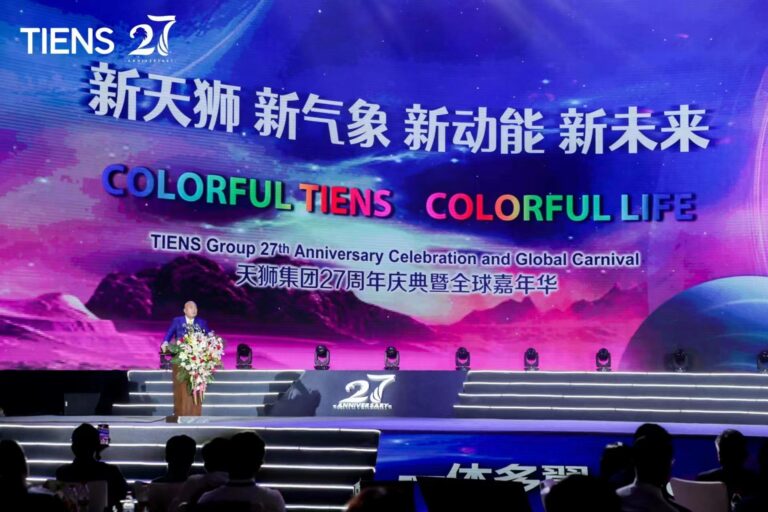
Additional direct sales companies, outside of the top 5
Mary Kay (玫琳凯)
Country of origin: United States
Founded: 1963 in Texas, USA
Licensed in China since 2007
Registered capital: 22 million USD
Mary Kay was founded in 1963 in Texas and exclusively focuses on direct sales of cosmetics and makeup products. Due to industry consolidation and the impact of the pandemic, Mary Kay's market experienced a significant setback, leading to a major adjustment in its Chinese management team. In 2022, Mary Kay named its future five-year development strategy the "Mulan Plan," which not only highlights female culture but also incorporates a deeper understanding of the female spirit into the company's core values. Since 2022, Mary Kay has placed greater emphasis on employee happiness and implemented multiple measures to enhance workplace flexibility. In terms of sustainable development, Mary Kay has put forward the "Beauty Sustains" development strategy, aiming to create value for China's economy, society, environment, and other fields.
In 2023, the direct sales business will be fully converted to online, and the original direct sales model will be replaced by an e-commerce model. As of November 2023, the order volume from Chinese customers is five times that of the same period in 2020.
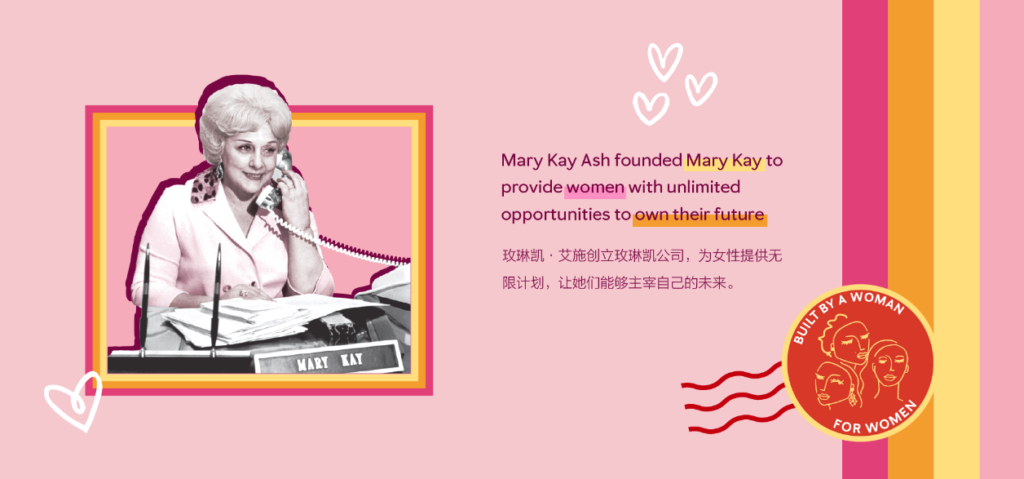
Melaleuca (美乐家)
Country of origin: United States
Founded: 1985 in Idaho, USA
Licensed in China since 2007
Registered capital: 12.01 million USD
Melaleuca is a direct sales company that was established in the USA in the middle of the 80s. As the company’s sales pitch goes, Melaleuca does not sell products, but a brand-new life “experience”, where health is an “attitude to life”. Melaleuca was one of the direct sales companies that received a warning from the American Trade Commission, for the use of misleading advertisements. As it turned out, only 1% of Melaleuca “evangelists” are making any profit from selling the life-changing products, and this piece of information somehow wasn’t mentioned in the company’s promotional materials.
In the first half of 2022, Melaleuca China promoted 26,000 partners, and in the second half of the year, it carried out digital upgrades in three aspects: consumer feedback, business strategies and enabling tools. However, the performance in 2023 is only half of the peak period of more than 7 billion yuan. Affected by the performance, Melaleuca began to streamline its personnel. Despite this, at the Hainan annual meeting in 2023, Melaleuca had more than 22,000 participants, making it the largest meeting held by China's direct selling industry since the epidemic.
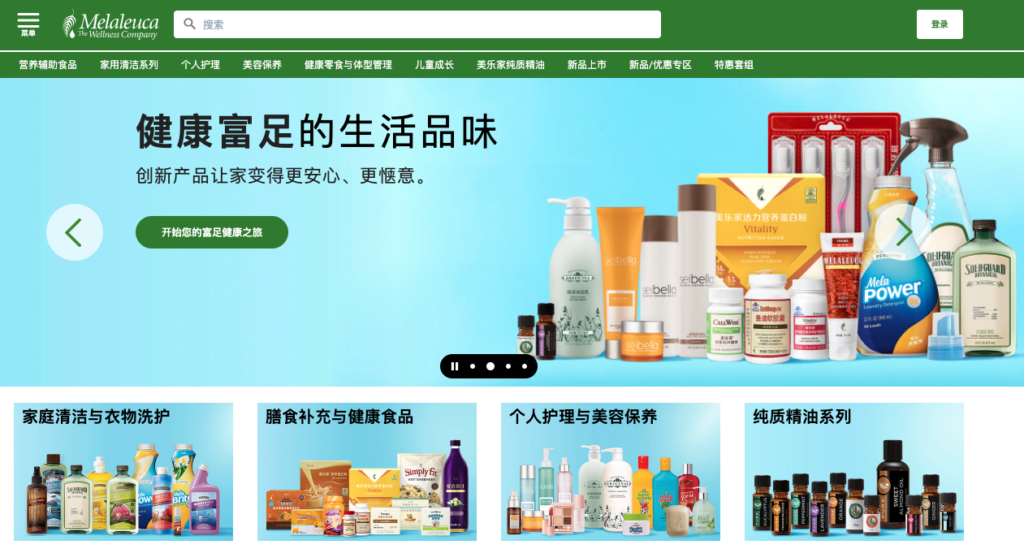
USANA (BabyCare)
Country of origin: United States
Licensed in China since 2007
Registered capital: 30 million USD
BabyCare has always been the most low-key foreign-funded direct-selling company in China. It was not until the American direct-selling giant USANA supported it with capital and products that it gradually developed into the backbone of the industry. Many BabyCare distributors have mastered the network operation method in the USANA era Therefore, the impact of the epidemic on the company is not as great as other companies. In the first half of 2022, USANA achieved a rare performance growth. At present, USANA spends a lot of money to build a studio to try webcasting, but the company does not plan to invite external anchors or use external platforms, but builds its live broadcasting platform and uses the company's internal personnel to complete it.
The annual report shows that BabyCare currently occupies half of the USANA market and is defined as the first priority market. On January 19, 2024, the USANA Baby Care 2024 Brand Ceremony was held, unlocking new ideas for customer expansion from the four major theme plans of the U+ community, and starting the future development in 2024.
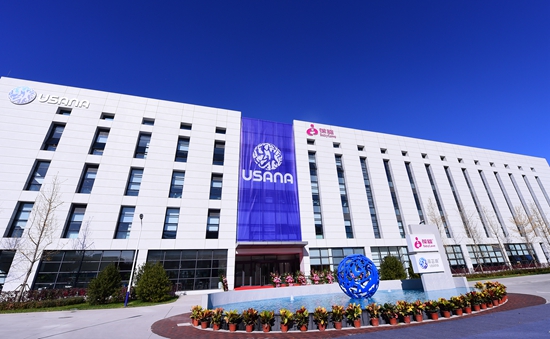
Infinitus (无限极)
Country of origin: China
Licensed in China since 2007
Registered capital: 14 million USD
Infinitus once achieved a commanding performance peak in the golden decade of direct selling in China, but it also suffered heavy losses in the industry storm and the epidemic. Fortunately, with a solid foundation and a strong family background, we are still confident about the future.
In 2023, Infinitus has upgraded its mission from the new starting point of its 30th anniversary - on the basis of the original "promoting China's excellent health culture", it has added "co-create a healthier and happier life". The core product brand "Yanggujian" was officially launched, and more than 500 offline brand activities were carried out around it, such as "Zhi" Yangju and "Health Trend I Watch", and the "Guangdong Yanggujian Traditional Chinese Medicine Health and Wellness Research Institute" was launched; Infinitus has upgraded its experience centers in 15 cities, focusing on "products + services"; at the same time, 70 products have been launched.
It is reported that Infinitus’ performance in 2023 exceeded 10 billion yuan. At the annual meeting held in January 2024, Infinitus proposed that it will continue to make efforts in three aspects: "providing Chinese health care solutions", "empowering entrepreneurial partners to build personal brands" and "co-creating Chinese health care communities".
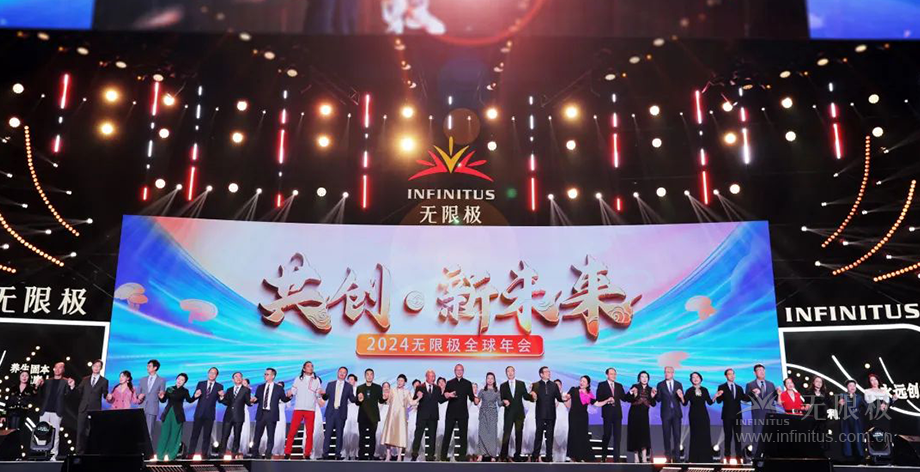
Direct Sales in China: Final Thoughts
With this, we conclude our overview of the Chinese direct sales market and hope you found it useful. While we try to cover and update the most relevant official policies overseeing the direct sales industry in China, we recommend referring to official sources such as the State Administration for Market Regulation (SAMR) or other relevant government agencies.
Despite the legal difficulties related to direct sales licensing, the Chinese market is still full of opportunities. As long as you adapt to local legal and marketing reality, review your decision through the prism of cultural differences, and understand and cater to the mindset of the Chinese consumer, direct sales certainly can be profitable.
If you’re looking for a direct sales agency specializing in China market entry services to enhance your eCommerce presence, TMO Group has rich experience in cross-border eCommerce consultancy, localization, and marketplace store setup among other Cross-border eCommerce solutions. Reach out to us to learn more about our advertising, search engine optimization, and other Marketing services for eCommerce.
China Cross-Border eCommerce Success Stories:
- LifeVantageA Cross-border Bonded eCommerce solution that integrates logistics, payment, and customs compliance, helped LifeVantage to smoothly enter the Chinese market.Lifevantage
- MT365Dynamic content based on member tiers helps MT365 offer a multi-language, app-like web experience in Asia and lays the framework for easy international scaling.MT365
- MannatechMannatech's legally-compliant China bonded cross-border model provides an optimized eCommerce experience on WeChat and across desktop, mobile, and tablet.Mannatech



